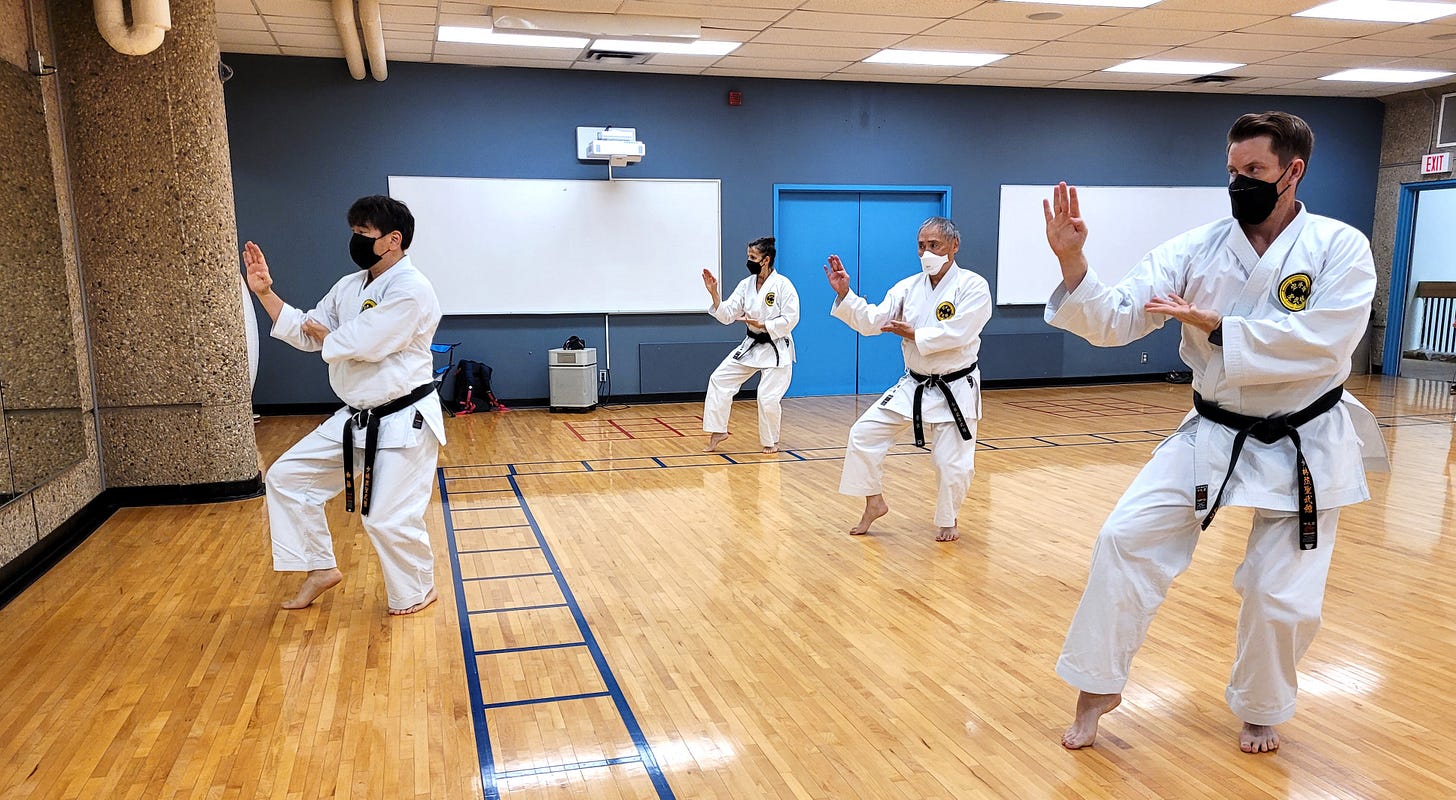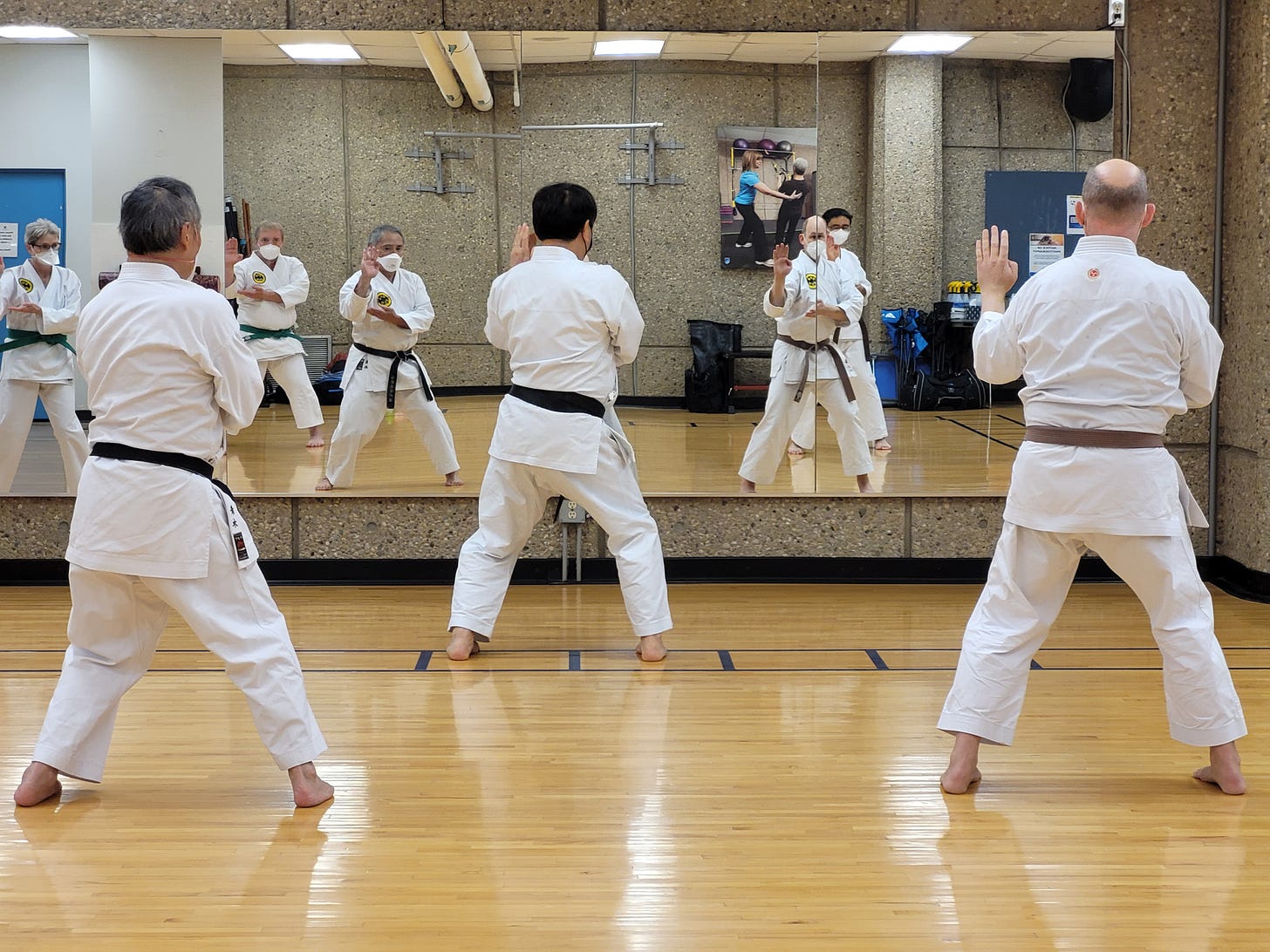Some martial artists boast about how tough they are. They’re sure they can beat anyone in a fight, whether on the street or in a tournament. I tell my class they're not going to become world champions. I am not a world champion. We are not elite athletes. We’re merely average; neither the best nor the worst, part of that vast middle ground in between.
Yet, for that reason—because of that mere averageness—my students prove that they are very special.
They’re ordinary people, born with an ordinary range of abilities and weaknesses. Some, like me, came to karate relatively late in life; some are younger but never excelled at sports. Some have more strength and coordination than others. But regardless of their natural or previous condition, when they come to the dojo, they sweat and push and try to relax into speed and power. They face the limitations of their bodies everyone has and are challenged to exceed them. They move through forms passed down through centuries and thereby become part of a long and noble tradition.
They listen; they watch; they learn; they try hard; they support each other; they delight in others’ successes. They understand that their own progress is close-coupled to the progress of the people they train with. And through all of that, they get better: stronger, faster, more skillful, more balanced and rooted, more supple, more open, more humble, more steadfast.
In these times, that’s rare. Pop psychology urges us towards a peculiar strand of positivity. Don Miguel Ruiz, who writes on spiritual enlightenment, says, “Imagine that you love yourself just the way you are. You love your body just the way it is, and you love your emotions just the way they are. You know that you are perfect just the way you are.”
This is not the way of karate. Every time a karateka steps onto the floor, they see they are not perfect. If they do no lie to themselves, the mirror tells them so. But for us, that’s a very good thing. The very ground of learning is recognizing your imperfections and to strive to overcome them. Education is always a transformation. It’s about changing the self; it’s not about being content with it. I and my students come to the dojo to develop out bodies and souls. Our sweat and ache are tell-tales of the forging of muscle, sinew, and spirit.
My students don’t train because they love themselves just the way they are; they train to change because they know they need to change. They seek to become better at karate, just as they seek to become better as human beings. And, step by step, they succeed.
They will not turn into world champions through their dedication, yet every class they prove that they are ordinary people accomplishing something extraordinary: following the way of karate and becoming not perfect, but more human, with each other.
I admire them so much.







I think self-affirming pop psych is in many ways a simplistic binary response to advertising that exploits insecurities. Thank you for showing us another way.